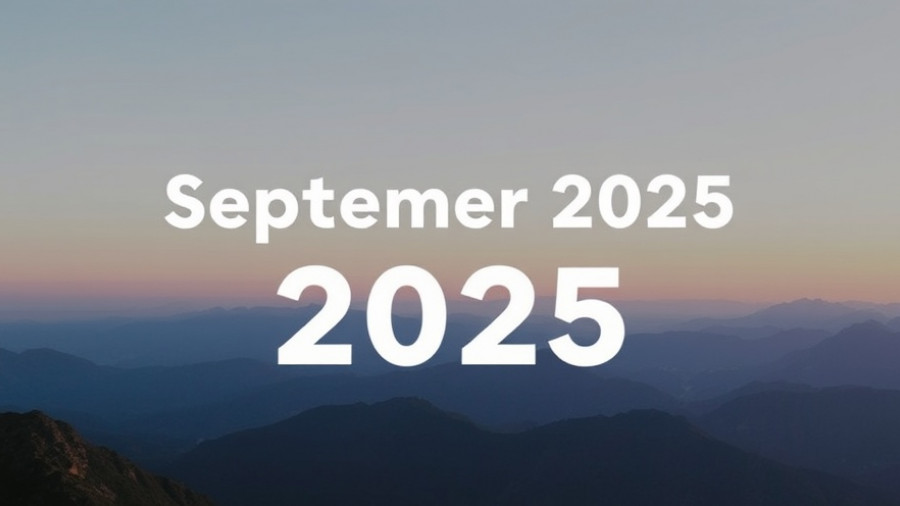
Understanding the Disconnect: Why Clicks Can Drop While Impressions Stay Stable
As digital marketers navigate through evolving SEO landscapes, a perplexing trend has surfaced: clicks can drop sharply even when impressions seem stable. This phenomenon, increasingly discussed in forums and professional groups, raises numerous questions about how search engines measure activity and what it means for website performance.
The Impact of Google's Changes on Impression Data
Starting around mid-September 2025, many have noticed significant drops in their impressions on Google Search Console, a key tool for monitoring website performance. These drops have sparked debates among SEOs, with the consensus centering on a critical change Google implemented—the discontinuation of the &num=100 parameter, which allowed tools to retrieve large sets of search results efficiently. In essence, fewer impressions are currently reported because bots can no longer access the same depth of results, fundamentally altering impression counts.
Bots and Ghost Impressions: What You Should Know
The sudden decline in impressions has often been attributed to inflated metrics caused by bots scraping data. Historically, these automated tools had the ability to inflate impression counts by accessing deeper search results. As Google recalibrated their data reporting mechanisms, many of these inflated impressions vanished, leading to a stark contrast: a decrease in reported impressions without a corresponding decline in actual traffic or clicks.
Clicks vs. Impressions: Analyzing the Core Metrics
Ultimately, the data reveal mixed signals. Some users have reported a stable or even improved click-through rate (CTR) in light of these changes. With the denominator (impressions) shrinking while the numerator (clicks) remained steady, CTR calculations appear to paint a more favorable picture, despite the underlying reporting issues.
Looking Forward: Adjusting Your SEO Strategy
What does this mean for businesses and marketers? It signifies that traditional metrics like impressions are becoming less reliable as indicators of true visibility. As the landscape continues to evolve, it is essential to shift focus toward user-centric measures such as actual engagement, conversions, and organic traffic analytics. Aligning strategies accordingly will better match with Google’s increasing predilection for AI-driven SERP features and rich results that do not always lead to clicks.
Strategies for Adapting to the New SEO Landscape
Marketers should consider exploring the following strategies to weather the changes in tracking impressions and clicks:
- Focus on Engagement: Shift your KPIs to encompass engagement metrics, such as bounce rates and time on site, to provide a clearer picture of user interaction.
- Emphasize Quality Content: Create compelling, in-depth content that not only attracts clicks but enhances user experience and satisfaction.
- Stay Informed: Regularly monitor Google's algorithm updates and SEO community discussions to stay ahead of potential shifts in how visibility is reported.
Recognizing the Importance of Accurate Data
The digital marketing world is fast-paced and ever-changing. By remaining agile and adapting to shifts in Google's reporting mechanisms, marketers can leverage newfound insights to thrive. While drops in impressions may initially seem alarming, they often represent a shift toward more accurate data reflective of real user behavior, rather than indicators of failing SEO strategies.
Conclusion: Key Takeaways from Recent Trends
For SEO professionals, the recent drops in impressions might signal a pivotal moment. Rather than panic, it's time to re-evaluate how success is determined. The focus should be on adapting to the cleaner, potentially more realistic metrics that are in play, ensuring strategies evolve in response to Google's advances and changing algorithms. By keeping an eye on what matters—engagement, conversions, and content relevance—businesses can better navigate the complexities of today's digital landscape.
 Add Row
Add Row  Add
Add 




Write A Comment